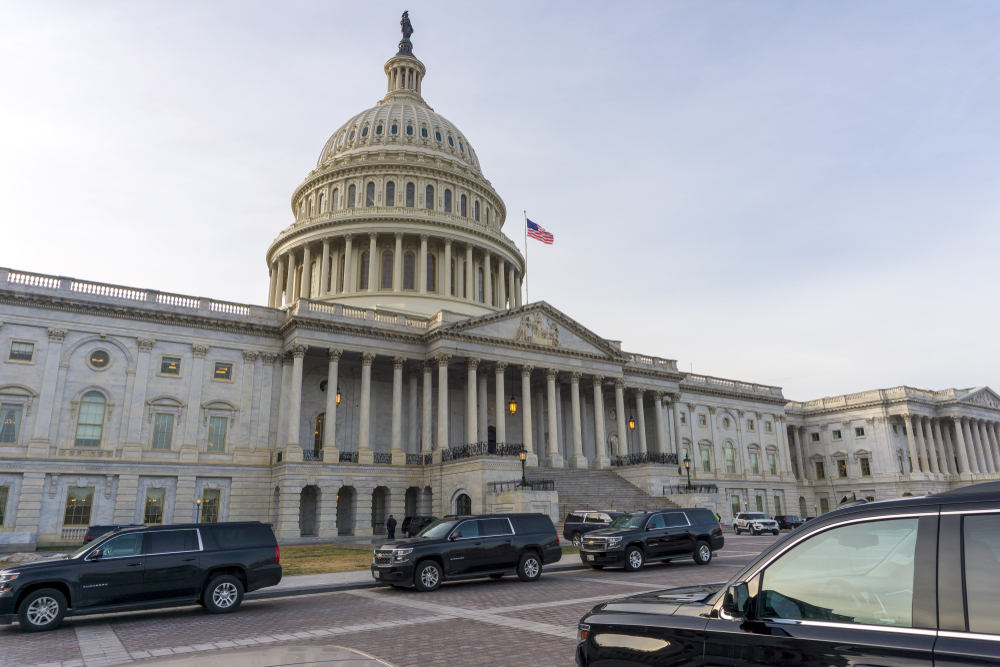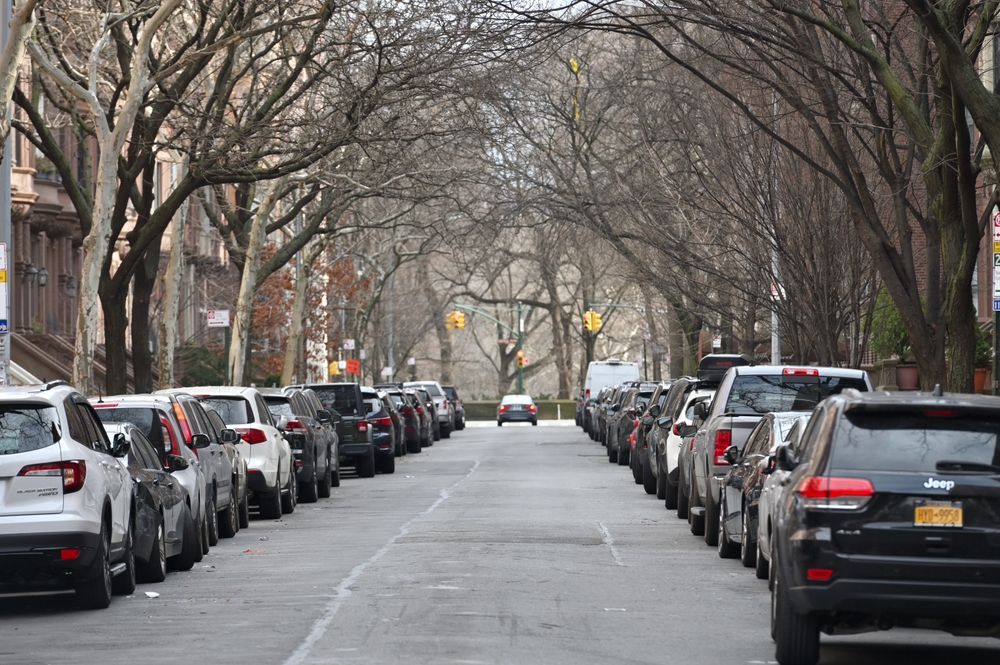In early February, Paris took a decisive step to deter visitors from driving enormous cars like SUVs in the city center. Voters approved a measure that would triple parking fees for SUVs and other large vehicles. If Paris City Council approves this measure in May, on-street parking fees for heavy vehicles will be as high as $240 for six hours, as opposed to $80 for regular cars. (Exceptions will be made for Paris residents who park in their own neighborhoods, people who use heavier vehicles because of disabilities, and professional vehicles such as taxis.) Residents of Lyon, the third-largest city in France, will vote on a similar proposal this month, and in Grenoble, residents have already voted to increase parking prices for SUVs who park in city-owned parking structures.
There are several reasons a city like Paris might want to discourage people from driving ginormous vehicles. Not only do SUVs and other large cars guzzle more fuel (and therefore emit more greenhouses gases) than regular cars, but they’re also more lethal to pedestrians and cyclists. New research published by the Virginia-based nonprofit Insurance Institute for Highway Safety showed that trucks, SUVs, and vans with hood heights greater than 40 inches were nearly twice as likely to cause a fatality in crashes with pedestrians than shorter, lighter vehicles. This adds to a growing body of research that shows bigger, heavier vehicles are more lethal in crashes — even to other cars. Children are particularly vulnerable. In New York City, half of the children killed on city streets between 2014 and 2019 were struck by SUVs or other large vehicles; in 2022, that percentage rose to a grisly 80 percent. Finally, heavy vehicles like SUVs, which can weigh over 6,000 pounds (three tons), also take a greater toll on roads.

Following Paris’ example, Germany’s Environmental Agency (BUND) called for higher parking fees on SUVs, and so did the Association of German Cities. (So far, only the city of Tübingen has implemented such a policy.) That said, in seven European countries, the taxes residents pay when buying a combustion-engine car or truck more than double the cost of the vehicle. Those countries are Denmark, Finland, France, Iceland, Turkey, the Netherlands and Norway.
Though he’s unaware of any American city that has introduced a parking reform similar to Paris’s, Henry Grabar, author of Paved Paradise: How Parking Explains the World, thinks a policy like this is far more likely to be adopted in the US than one might expect.
“It’s less about getting rid of on-street parking spaces and more about putting the interests of city residents over those who live outside the city,” Grabar says. “So even if you were a Parisian who drives an SUV this would’ve been an appealing proposal for you, because the more you can dissuade suburbanites from driving into town and using up your parking, the more parking there is available for you.” A decade ago, Donald Shoup, the US’s foremost parking scholar, wrote a paper for Access called “Making Parking Meters Popular” suggesting exactly this policy. One way to make parking meters more palatable to voters, he argues, is to give parking discounts to local residents.
“Resident parking discounts are justified because residents already pay taxes to maintain the streets and municipal garages in their city,” he writes. This policy should also please merchants, according to Shoup, because it’ll give residents new incentives to shop locally. (In that same piece he also floated an idea to give parking discounts to smaller cars that take up less curb space. Though he suggested cities classify license plates by car length, not weight, the idea was the same as the one behind the new Paris ordinance: tax larger, less fuel-efficient vehicles.)

That said, there are a few places in the US that are charging more for the registration of these behemoth vehicles.
Quite a bit more.
In 2022, Washington D.C. became the first city in the US to pass legislation to raise registration fees for larger vehicles. Though the move was part of the District’s broader strategy to combat climate change, Mary M. Cheh, the bill’s lead sponsor on City Council, also frequently spoke about how dangerous heavy vehicles are in pedestrian or bicycle-related accidents. Starting in October 2023, the annual registration fee for a vehicle weighing over 6,000 pounds increased to $500. (Vehicles under 3,500 pounds like the Honda Civic remained at $72 per year to register.) Electric vehicles are discounted to $36 annually, at least for the first two years. After that, an electric vehicle owner will still pay less than the standard registration fee (the deduction is determined by the car’s weight). Here, too, exceptions are made for those whose vehicle is heavier due to the accommodation of a disability. The higher fees are expected to bring in $9 million in fiscal year 2024, which will be earmarked for improving road safety around schools.
New York State is considering similar legislation. State senator Andrew Gounardes is the lead sponsor of a bill that would incrementally increase registration fees on heavier vehicles so that by 2030, the owner of a Ford Explorer (curb weight: 4,345 pounds) would have to pay $680 every two years. In this proposed legislation, even electric vehicles that weigh over 5,000 pounds would be charged the higher fees, since — even though they don’t emit carbon — they are still as likely to kill pedestrians as their gas-powered brethren. (Smaller EVs would be eligible for a $1,000 credit.)

Grabar thinks it’s unlikely that something like a higher parking fee — even one that’s three times higher — would disincentivize suburbanites from buying SUVs. After all, what’s $240 every so often when you’ve spent $50,000 on your car?
“But it could potentially change peoples’ day-to-day decision-making about whether to drive their SUV to a particular location,” Grabar says. “There is a significant externality to having somebody in a giant car driving around your downtown. Chiefly, that externality comes in the form of pedestrian and bicycle fatalities.” So to Grabar, the rationale should be more, “‘You want to drive into our congested, pedestrian-friendly city center? Well, that’s fine but you’re going to have to pay for it.’ And if that payment gets you to think twice about your choice to drive it downtown then that’s exactly the goal.”
Crushed by negative news?
Sign up for the Reasons to be Cheerful newsletter.Tony Jordan, the founder and president of the Parking Reform Network in Portland, Oregon, says that the new Paris law is good and necessary policy. “In the United States, we’re trying to get there but we’re so far behind,” Jordan says. He thinks that there’s great opportunity for progress at the state level, though, charging a higher vehicle registration fee for heavier cars the way New York is proposing. Some states, including Oregon, are realizing that as more residents switch to electric cars, the traditional funding source for road maintenance — gas taxes — is disappearing. As a result, Oregon is considering vehicle-miles-traveled (VMT) fees — and this could be calibrated to include vehicle size.
In New York, the proposed bill is focusing solely on vehicular violence, but Jordan thinks that’s a mistake. “It’s harder, for sure, to build campaigns around multiple issues, but there are many stakeholders whose issues are impacted by very large personal vehicles,” says Jordan. “I believe there’s a lot of power in coalition-building. And coalition-building pays dividends beyond any particular campaign.”
The post Can Cities Drive SUVs Off Their Streets? appeared first on Reasons to be Cheerful.


















